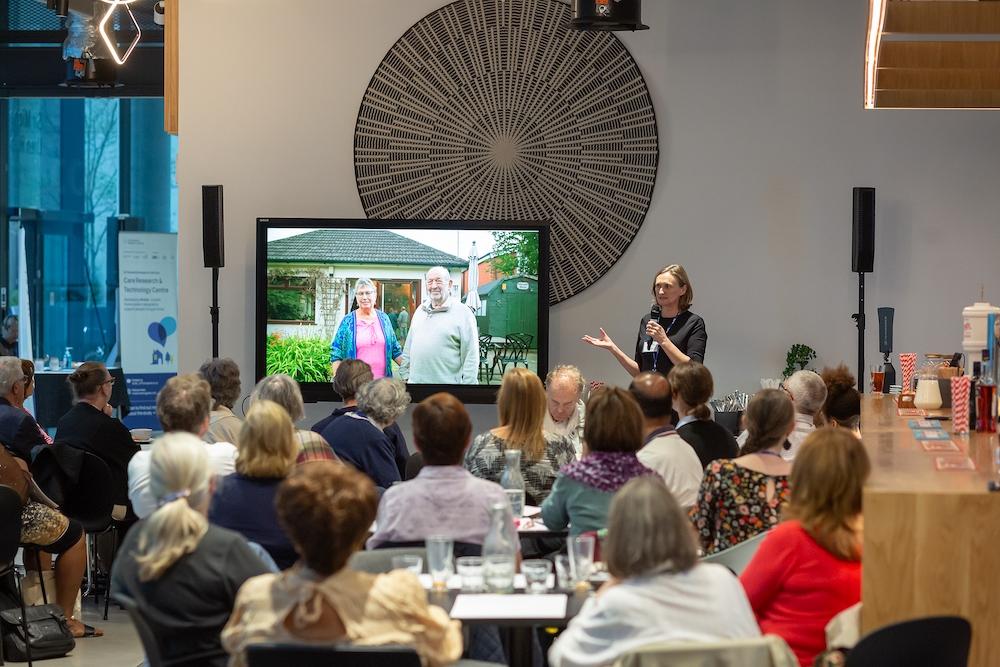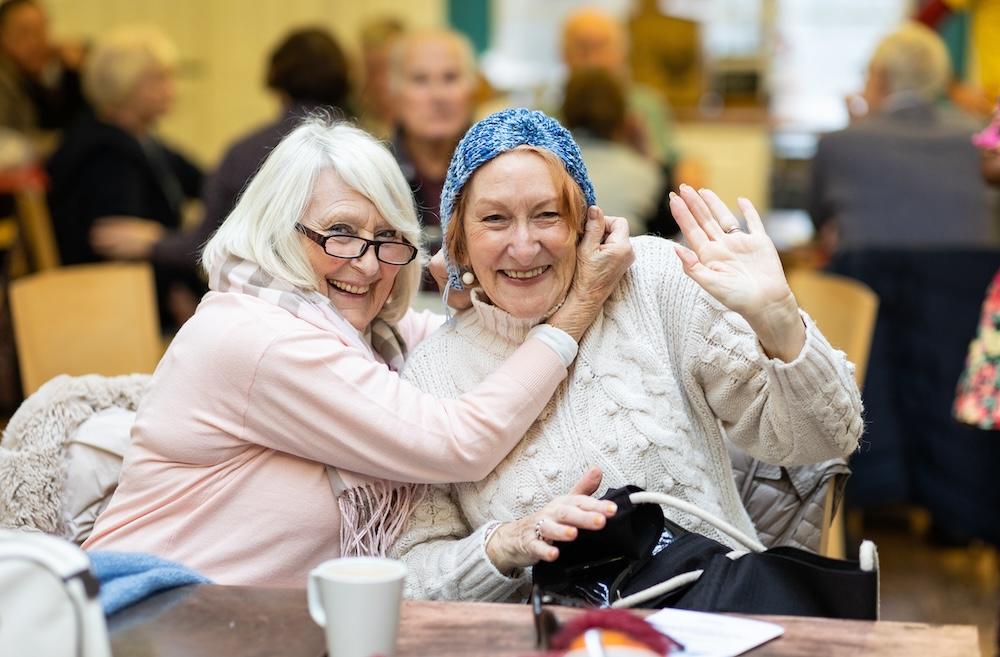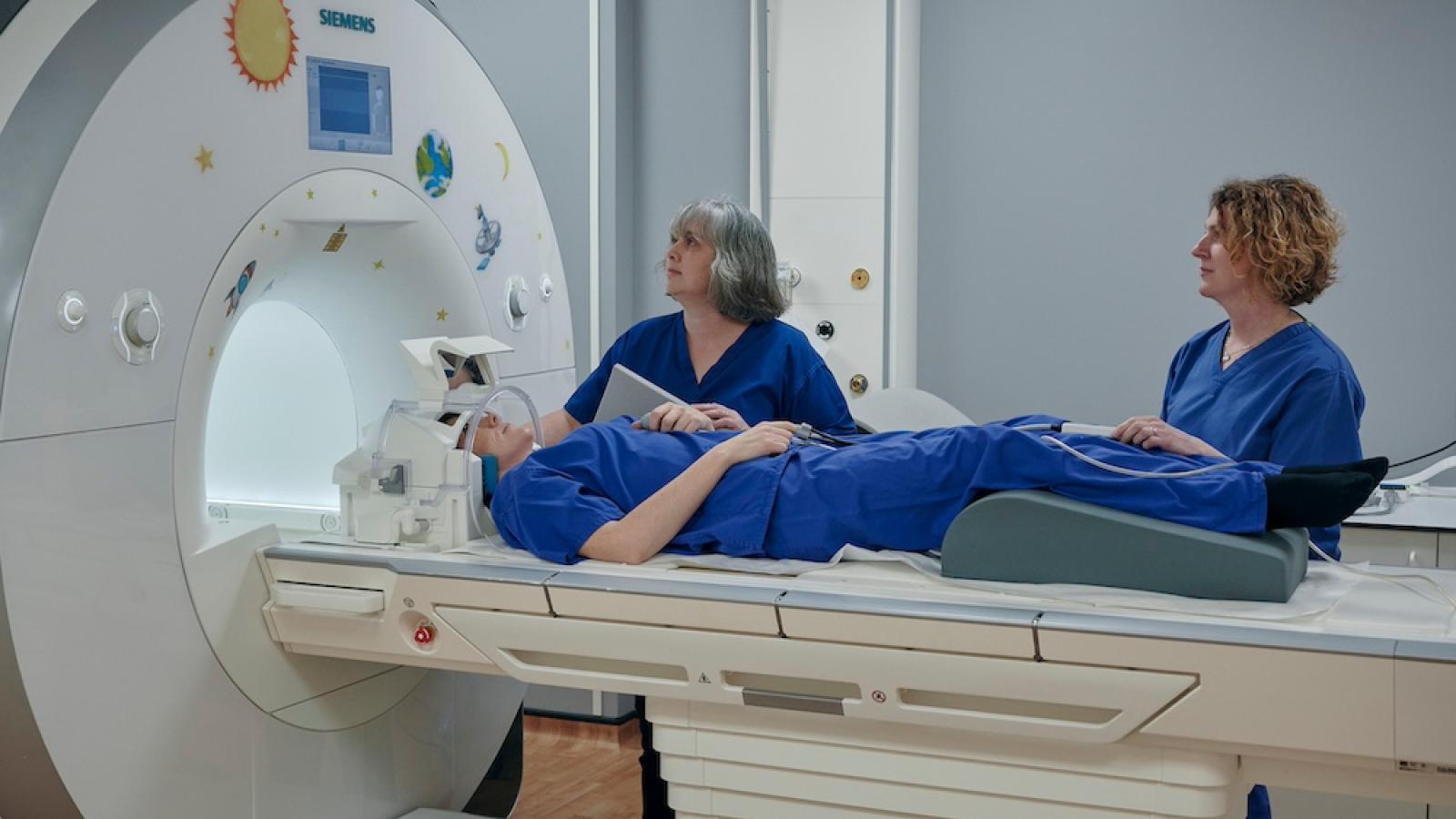Getting involved in dementia research and clinical trials is a meaningful way to support growth in our understanding of these conditions and the development of new treatments. People often find participating in research to be a hugely positive and rewarding experience, not only potentially benefiting your health, but also leaving a legacy for future generations affected by dementia and associated neurodegenerative conditions.
How to get involved in research and trials
If you’d like to get involved, Join Dementia Research is a great place to start. It’s a national service that connects volunteers with researchers who are looking for people to take part in their studies and includes opportunities for both people living with dementia and healthy individuals to contribute to research. By signing up, you can be matched to studies based on your health, location and other criteria, making it easier to find suitable opportunities.
UK DRI is also involved in a number of studies such as the MND-SMART trial, a multi-centre study investigating treatments for motor neuron disease (MND/ALS). You can learn more about these studies and other UK DRI trials on our specific condition pages.

Superintendent Radiographer Charlotte Jardine at an MRI brain scanner which is often used in trials. Credit: Wardlaw Lab and Edinburgh Imaging Facility
Other ways to contribute
If taking part in clinical trials isn’t an option for you at this time, there are other ways to support dementia research and people living with a neurodegenerative condition.
Lived experience groups
Lived experience groups provide invaluable insight to researchers and help to make sure that studies are based on the real experiences of those living with dementia and associated neurodegenerative conditions.
The UK DRI's Lived Experience Group offers a platform for individuals to share their stories and help with the design of new research projects. Your experiences can help shape the future of dementia research and care.
The Friends of CR&T network is another way to get involved. This community, centred around the work of the UK DRI’s Care Research & Technology Centre, brings together people with a passion for dementia research and brings opportunities to support fundraising, raise awareness and advocate for better policies and practices. You can register your interest here.
Most major charities also have lived experience groups and networks so you can find the right community for you.

The launch of the Friends of CR&T network in October 2023. Image credit: Dan Weill
Join a long-term health study
Our Future Health has the ambition of becoming the UK’s largest ever health research programme. It is designed to help everyone live longer and healthier lives through the discovery and testing of more effective approaches to prevention, earlier detection, and treatment of diseases including dementia and neurodegenerative conditions.
Researchers can access Our Future Health and analyse data that helps them to identify more effective ways of tackling diseases. For example, they might discover a new test that detects Alzheimer's at an early stage, when it is easier to treat.
Every adult living in the UK is eligible to join Our Future Health, including people with pre-existing health conditions. By taking part in Our Future Health, you’ll support new discoveries that will help everyone live longer and healthier lives. You’ll also have the chance to find out more about your own health and future risk of disease.
Find out more about Our Future Health and sign up

Supporting others
Helping others navigate their dementia journey is another powerful way to make a difference. Whether that’s through volunteering, supporting others or simply sharing your experiences, you can be a source of comfort and guidance.
Local support groups and charities are always on the lookout for new volunteers. By lending a hand, you can directly impact the lives of individuals and families affected by dementia.

